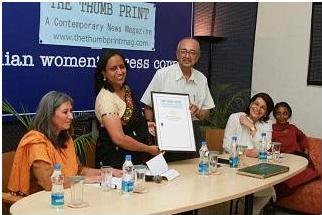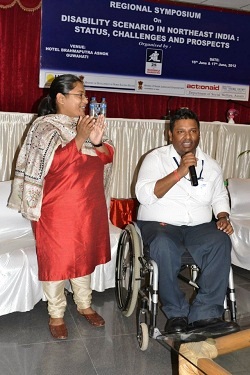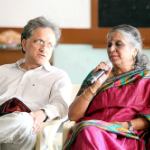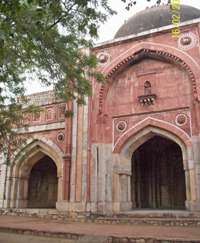It is surprising to observe and read the defense of appointment of HRD Minister Smriti Irani by the groups of people, the so-called upper castes. It is really astonishing to witness their double standards. Throughout the history of reservations these very people have raised the issue of ‘Merit’. They used to argue and still argue that there is deterioration of merit because of introduction of reservation or those who come from reservation they do not have merit. Before we come to the issue of appoint of HRD Minister let me briefly dwell upon issue of merit here.
Defining Merit
Although there is no constitutional and sociological definition of ‘Merit’ yet the so-called upper castes have evolved their own definition of ‘Merit’. According to this definition ‘Merit’ is nothing but marks scored in an examination. So, for example, if a person has scored 75 marks and other person has scored 70 then the person with 75 marks is declared or judged as more meritorious. Further, the so-called elites, who happened to be mostly so-called upper castes, along with marks scored in an exam add fluency of English language to judge a person’s merit. If you have fluency in English language then you will be declared as meritorious. Nobody will bother about the content of the language. However, the ‘perspective from below’ has always been critical of such definition of Merit. Because it opines that marks scored in and exam and fluency of English language is product of life chances and family background. It is because of family background that students get good schools, books, gadgets, teachers, friends and networks, electricity in their homes, conveyance to go to school, conducive educational environment-with parents and relatives taking care of homework and speaking the same language as spoken in the school etc. Even the curriculum contains their icons, festivals, food items, and values. P. Bourdieu has called all this as social, cultural and symbolic capital. If a student has all these facilities at his disposal then he is bound to score more marks than those students who lack these life chances and family back ground. So Merit not extraordinary achievement of a student rather it is product of life chances, social, cultural and symbolic capital which Dalits, Tribals and to a large extent the lower strata of Muslims lacked. That is why they are condemned as lacking ‘Merit’.
Irani Case and Merit
The Dalits and Tribals have always argued that please give us platform or give us a chance and then judge us by our performance on the job. Give us representation in the institutions of governance, production and education and then judge on their performance. To give them a fair representation, that is why, the framers of the constitution introduced reservations. However, as soon as reservations were introduced the issue of ‘Merit’ was simultaneously raised by the so-called upper castes to condemn the scheme and Dalits both. Dalits are ridiculed that they do not have merit and yet they get jobs. Now, when the Irani issue has come the same so-called upper castes, who used to be fond of meritocratic system, is speaking the language of the Dalits. They are arguing that do not judge Irani on the basis of marks scored by her in the exams or what exams she has passed. Do not judge her ‘Merit’ by the nature or from which type of education system she has taken (open school) education. Do not ask about her experience in the institution of governance. Let us first induct her in the job and then Judge her by her performance on the job. Although they have not given any time period, after which, her performance can be judged-that is to say one year, two year or after five years period for judging her. So when it is their own case now the so-called upper caste is changing the tenor and tone of debate. They do not want to invoke their own definition of merit.
However, within the Modi cabinet itself experience, education and length of training within the party and parliament has been given due credit. All other ministries are being handled by very senior and experienced BJP parliamentarians –like Modi, Rajnath, Jaitely, Shushma Swaraj, Ravi Shankar Prasad, Naidu, Annath Krishana to name just a few. Then why experience in the political life and parliament was not given importance in Irani’s selection. Of all, she also failed the only test which is required to be Member of Lok Sabha. The people of Amethi rejected her in the Lok Sabha polls. Then how can she be declared as meritorious to be HRD Minister. Is there any reservation for women in Cabinet? Why can’t the so-called upper castes be a little more objective?







































